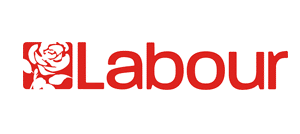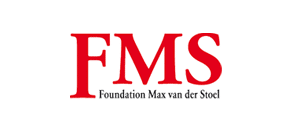Armenia

The conflict ended when a Russia-brokered ceasefire was established in November 2020. The signing of the ceasefire agreement meant that Armenia not only had to give up the pieces of land that Azerbaijan gained in the war, but also additional pieces of territory that Armenian forces still controlled.
In Armenia the ceasefire and consequent loss of territory led to protest that called for the resignation of Pashinyan. In February 2021 the protests led to a standoff between Pashinyan and the military after Pashinyan stated that missiles that were provided by Russia underperformed during the war. A senior official who was critical of Pashinyan’s remarks was fired. This resulted in Pashinyan being publicly challenged by the chief of general staff and a group of top military officers who demanded that he’d resign. In a response to what he called an ‘attempt at a military coup d’etat’, Pashinyan called on his supporters to face off against demonstrators calling for his resignation.
On the 9th of March 2021 the protests reached a critical tipping point when opposition parties barricaded the parliament building. Under pressure from the continues protests, Pashinyan announced on March 18th of 2021 that there would be early elections. The elections took place on the 20th of June 2021 and Pashinyan was reelected as Prime Minister. The next parliamentary election in Armenia will be held in 2025.
In January 2022, Armenia’s president suddenly resigned, citing he experienced a lack of power during the war. On 3 March 2022, he was replaced by Vahagn Khachatrian after a vote in the National Assembly. All opposition parties boycotted the vote. Again in May 2022, protests against Pashinyan were widespread. Opposition parties organized massive protests against Pashinyan’s ongoing negotiations in Brussels with Azerbaijan over Nagorno-Karabakh. After weeks of protests, the opposition caved in and ended the demonstrations in June 2022.
In January 2022, Armenia’s president suddenly resigned, citing he experienced a lack of power during the war. On 3 March 2022, he was replaced by Vahagn Khachatrian after a vote in the National Assembly. All opposition parties boycotted the vote. Again in May 2022, protests against Pashinyan were widespread. Opposition parties organized massive protests against Pashinyan’s ongoing negotiations in Brussels with Azerbaijan over Nagorno-Karabakh. After weeks of protests, the opposition caved in and ended the demonstrations in June 2022.
A new chapter has begun on 19 September 2023. In an attack of only 24 hours, Azerbaijani forces conquered the region and ignited an exodus of the ethnic Armenian population of about 120.000. Armenia has accused Azerbaijan of ethnic cleansing. Armenian officials have stated that starting on 1 January 2024, the autonomous region will seize to exist.
-
Want to get notified by mail when this country gets updated?
Subscribe to our newsflash below!
Key Info
-
Population: 2,968,128 (World Bank 2021)
-
Governmental Type: Parliamentary republic
-
Ruling Coalition: Civil Contract
-
Last Elections: 20 June 2021 (early parliamentary elections)
-
Next Elections: 2026 (parliamentary and indirect presidential elections)
-
Sister Parties: Armenian Revolutionary Federation - Dashnaktsutsyun
1 Political Situation
Under the political rule of the Republican party, protests sparked by civic initiatives became very common in Armenia’s capital Yerevan as well as in Gyumri and Vanadzor, its second and third largest cities respectively. These initiatives had mainly been organised by a post-Soviet generation of young civic activists without any political party affiliation, who address a range of issues including the environment, cultural preservation, consumer rights, prices of basic commodities, labour and employment issues, as well as human rights. The long-time rule of the Republic party came to an end with the velvet revolution in 2018.
The velvet revolution started a new political era in Armenia under the leadership of Pashinyan. Many civil society actors have taken up posts in the new government or joined political parties. Others did not want to join state institutions because of the fear of cooptation and a weakening of civil society’s ability to hold the government accountable for its actions. On the left side of the political spectrum there has been opposition against the growing neoliberal route that is taken by Pashinyan’s government. These activists argue that the move towards more neoliberal policies have led to increasing poverty and inequality.
Since Pashinyan has been in power the largest protests that have taken place were after the signing of the ceasefire in November 2020 after the last Nagorno-Karabakh war. The loss of territory to Azerbaijan has led to civil unrest and protests. The protests were led by opposition parties. The pressure on Pashinyan increased after he criticized the performance of Russian provided missiles during the war. As a consequence top military officers called for his resignation. The protests escalated when the parliament building was barricaded on the 9th of March 2021. After Pashinyan announced new elections some parties ceased their protests, while others continued. The following elections of June 2021 were won again by Pashinyan. While the democratic transition in Armenia and the support that it has from civil society organizations remains fairly strong, the war has revived political divisions. The territory and lives that were lost during the war and feelings of insecurity are generating discontent in Armenia. This discontent is threatening the government of Pashinyan, who has been broadly criticized for his handling of the war.
Nagorno–Karabakh conflict
The Nagorno-Karabakh conflict is a conflict between Armenia and Azerbaijan over the territory called Nagorno-Karabakh. The people of Nagorno Karabakh had attempted to legally obtain their independence in the early 1990s through a referendum. This decision sparked a full scale war between the two nations and the result of the referendum was rejected by the Azeri Government. An Armenian populated enclave within the internationally recognised borders of Azerbaijan, Nagorno-Karabakh has been de facto independent from Azerbaijan since the war in the early 1990s. Internationally, Nagorno-Karabakh is considered part of Azerbaijan, but its Armenian inhabitants call themselves citizens of the Artsakh (Nagorno-Karabakh) Republic. Although self-governed, it depends financially and militarily on Armenia. Both countries also have different supporters who are entangled in the dispute. Turkey has promised to stand with Azerbaijan while Russia pledged to defend Armenia.
The ‘frozen conflict’ had been ongoing for over two decades without a peace agreement. Peace negotiations mediated by the Minsk Group, under the Organisation for Security and Co-operation in Europe (OSCE), had seen little progress. There were still frequent shootings across the frontline, with dozens of deaths each year. Each side blamed the other for military casualties.
The conflict was reignited on the 27th of September 2020. During six weeks of fighting over 6,000 people lost their lives. After the war was halted, the situation on the ground had significantly changed. Azerbaijan managed to take control over territory in and around Nagorno-Karabakh. More than one third of the population was uprooted from areas that were formerly under the control of Armenia are now controlled Azerbaijan. Specifically important gains for Azerbaijan were the town of Shusha, which lies close to Nagorno Karabakh’s capital Stepanakert, and the Lachin corridor. Azerbaijan also gained some of Nagorno-Karabakh mountainous areas and seven additional pieces of territories that it had lost to Armenia in the 1990s.
On November 9, a Russia-brokered ceasefire was established in which Azerbaijan got to keep the territory it regained in the conflict. Russian peacekeepers have been deployed to the parts of Nagorno-Karabakh that were held by Armenian forces. Part of the territory that is controlled by Russian peacekeepers is the Lachin corridor that contains the main road to travel from Armenia to Nagorno-Karabakh. Azerbaijan regained this corridor during the war, but will be under temporary control by Russian peacekeepers. The Lachin corridor is important to Armenia because it is a direct connection with Nagorno-Karabakh. If the territory were to fall under Azerbaijani control, this would cut of Armenian support to the region. It could also prevent refugees from fleeing to Armenia. Russian peacekeepers have been checking documents of travelers trying to enter Nagorno-Karabakh since January 2020. They do so in accordance with a new regime imposed by the de facto authorities.
Many foreign citizens, including those of ethnic Armenian origin who are engaged in humanitarian projects, have been refused entry to the region since this regime came into force. The ceasefire also created a new frontline. Where previously the opposing parties where separated by hundreds of meters, they are now separated by 30 to 100 meters. The close proximity of the military forces makes the new frontline more volatile. Regardless of the ceasefire, the situation on the ground remained tense and several confrontations have taken place since November 2020.
The conflict escalated again on September 13, 2022 after large-scale clashes between Azerbaijan and Armenia culminated in the deaths of at least 200 soldiers. The Armenian side has accused Azerbaijan of shelling military positions on Armenian territory with artillery and large-calibre firearms. Armenia requested its CSTO partner Russia for mutual assistance, but this call remained unanswered, which left Armenia dissapointed with the decisiveness of the alliance. A new ceasefire agreement was announced on September 15, 2022.
The ceasefire was violated by Azerbaijan on 19 September 2023, when it overrun the region completely with a devastating attack. Within a day the conquest was over and Armenian authorities resigned. The attack initiated an Armenian exodus of over 100.000 people. Azerbaijan promised the people they would be integrated and would receive the same civic and religious rights, however people took matters into their own hands and made their departure towards mainland Armenia. As the Lachin corridor was still blocked during the first days after the attack, people had to survive of very little food, water, medicines and fuel. Armenia accused Azerbaijan of ethnic cleansing. In the meanwhile, almost the complete population has left the region.
Velvet revolution
In early April of 2018, outgoing President Sargsyan was nominated by his ruling Republican Party as a candidate for the post of Prime Minister. With an absolute majority in parliament, there was no doubt he would be elected. This move was highly controversial. Sargsyan just ended his second and final presidential term in April 2018. During his term, he and the Republican Party launched an initiative that would change the constitution and transfer crucial powers from the President to the PM. The opposition from the very start feared this was simply a ploy for Sargsyan to remain in power as PM. In reaction to the nomination, the opposition called for protests. Most notable was Nikol Pashinyan, MP and one of the leaders of Yelk, an opposition alliance of three parties (including Pashinyan’s own Civil Contract party), with 9 seats in parliament.
Apart from a couple of small clashes and some hard-handed arrests there were practically no cases of mass beatings or crackdowns. Within days the protests had not only spread to the outskirts of Yerevan but also to other cities and towns across the country. Attempted talks between Pashinyan and Sargsyan on April the 22nd ended with the latter walking out after 3 minutes, angered by the presence of journalists and Pashinyan’s insistence on his resignation. After the talks, Pashinyan and most leaders of the protest were arrested. Instead of demotivating the protesters, this caused the pouring out of an unprecedented number of people onto the streets, with students taking over the lead as the politicians were jailed. Under such massive public pressure, Sargsyan resigned his post while Pashinyan was released alongside other protest leaders hours earlier on the 23rd of April. The ruling Republican Party was not yet ready to give in, however. Calling for new PM elections within several days, the party held on to its power. The parliamentary elections took place on the 9th of December and were won by Pashinyan’s My Step Alliance.
2022 – more protests over Nagorno-Karabakh negotiations
Since April 2022, Azerbaijan and Armenia are negotiating a new peace deal, mediated by western powers. On April 7, 2022, Pashinian and Azerbaijani President Aliyev met in Brussels alongside European Council President Charles Michel. Lately, progress has been made in the peace talks, with both parties seemingly ready to make concessions. Baku requests a mutual recognition of each other’s territorial integrity – Pashinian said this was acceptable for his government. In an April 13 speech, he had also said that the international community pressures Armenia to “lower the bar a bit on Nagorno-Karabakh’s status” – angering many in Armenia.
Since then, protesters call on PM Nikol Pashinian to step down as they oppose concessions to Azerbaijan regarding Nagorno-Karabakh. The protests gained momentum as major opposition leaders joined. The fierce protests continued until June 2022, when the opposition parties ended the demonstrations – saying to “re-evaluate their strategies”.
Human Rights
Reports have always shown that human rights violations remain an important issue in Armenia. The former authorities interfered in a number of peaceful protests that took place throughout the years. In several instances, police dispersed protesters using force. Local human rights defenders continued to raise concern over high numbers of reported beatings and ill-treatment in police custody. Some groups within society also aim to discredit human rights work and silence human rights defenders. Antidemocratic activists also appeared to target individuals with large amounts of hate speech online. Photos of activists were posted online in order to indicate that these individuals were being monitored. The government failed to take effective measures to counter these campaigns.
The US State Department has noted “systemic corruption” as one of the most frequent and serious forms of human rights violations in Armenia, saying the former authorities were not doing enough to tackle it. Local anti-graft watchdogs like the Anti-Corruption Center (ACC), which operates as the Armenian branch of Transparency International, was highly sceptical about the former government’s assurances of intention to tackle corruption. Armenia ranked 60th out of 180 countries and territories evaluated in Transparency International’s 2020’s Corruption Perceptions Index (CPI).
The post-revolutionary government of PM Nikol Pashinyan has made human rights and a fight against corruption its key points, next to eradicating monopolies and separating business from politics.
According to a Reporters Without Borders’ report regarding freedom of the media, there is a significant degree of pluralism and relatively little state censorship, as a law prohibits censorship in media. But still, there are laws through which defamation and libel can be punished by prison terms. Journalists have faced pressure, violence and charges under such laws. While it is too early to say whether and how the new government will affect change in this regard, it should be noted that PM Pashinyan, himself a former journalist, has so far been notably public and accessible to the media.
Women’s rights
Violence and discrimination based on sexual orientation and gender identity are serious problems as well. A few incidents were recorded when women’s rights activists were threatened and assaulted, as well as threats made to the Women’s Resource Centre following its calls for gender equality legislation. The anti-discrimination draft bill, prohibiting all forms of discrimination, was abandoned after the former government initiated the process to join the Eurasian Economic Union. While PM Pashinyan has singled out the role of women in the Velvet Revolution and expressed hope it was only the beginning of women’s active participation in politics, his current cabinet includes only 2 female ministers of a total of 15.
Violence against women is also still a problem in Armenia. Armenia has signed, but still has to ratify, the Council of Europe (CoE) Istanbul Convention on Prevention and Combating Violence against Women and Domestic Violence (Istanbul Convention). According to a Human Rights Watch Report, several cases of domestic violence were publicized by media and civil society groups in 2020. One incident was reported of a man who beat his partner to death. According to the Armenian criminal code, domestic violence is neither a stand-alone felony nor an aggravating criminal circumstance. According data collected during the first half of 2020, 395 cases of domestic violence were investigated by authorities. Charges were brought against 196 people, and 62 were send to court. Armenia only has two shelters for survivors of domestic violence, which only have the capacity to shelter 17 to 20 victims.
LGBTI rights
According to a report from the US Department of State, antidiscrimination laws do not extend protection to LGBTI individuals. Consequently, members of the LGBTI community cannot rely on hate crime laws or other judicial mechanisms to aid in the prosecution of crimes based on sexual orientation or gender identity. Furthermore, the report states that societal discrimination of LGBTI persons negatively effects all aspects of live, including employment opportunities, housing, access to health care and education and family relations. Transgender persons specifically are vulnerable to psychological and physical abuse. Public officials and politicians also take part in anti-LGBTI rhetoric.
The Armenian NGO PINK documented 41 cases of discrimination based on sexual orientation and gender identity. The cases included hate crimes such as physical, sexual and psychological violence, as well as violations of property and threats to someone’s life. In most of these cases the victims did not seek help from law enforcement, believing it unlikely that law enforcement would take action. Another NGO reported 130 cases of violations of the rights of LGBTI persons in 2020.
Gay men encounter abuse and discrimination due to mandatory military service. Men who are openly gay can be exempt from military service. However, the exemption requires a medical finding based on a psychological examination that indicates that an individual has a mental disorder. This mental disorder indication also appears on personal identification documents. This creates obstacles when gay men are looking for employment or want to obtain a driver’s license. Gay men who do not get an exemption and serve in the military have reported physical and psychological abuse by fellow soldiers and command.
Prison Monitoring Group described how LGBTI individuals are also suffering from abusive prison conditions in prisons. LGBTI individuals are held in segregated cells under worse conditions than other inmates. Cutlery and food preparation was separate, they had their own washing machine and a separate cell for solitary confinement. LGBTI individuals were also forced to perform humiliating tasks such as picking up trash for other prisoners, cleaning toilets and providing sexual services.
Armenia-EU relations
In the wake of a positive conclusion to four years of negotiations between Armenia and the EU on an Association Agreement, it seemed that Armenia could start to look forward to deeper cooperation with the EU, which would hopefully bring strong economic and political benefits. However, only months before the planned signing of the Association Agreement, President Serzh Sargsyan, after a meeting with Russian President Vladimir Putin, suddenly decided to make Armenia a member of the Russian-led Eurasian Economic Union (EEU) instead, thereby precluding the AA. On 2 January 2015, Armenia became a full member of EEU. The move is widely believed to be the result of strong Russian pressure in the areas of economy, energy and security. The Comprehensive and Enhanced Partnership Agreement (CEPA) was signed on 24 November 2017. It replaces the former EU-Armenia Partnership and Cooperation Agreement. As of August 2020 22 EU countries have completed the internal procedures necessary for the ratification of the CEPA, and 5 states – Spain, Belgium, Portugal, Greece and Italy, are very close to the completion of that ratification process.
Armenia and the EU are committed to further cooperation aimed at the continuous improvement of areas including democratic institutions and judiciary, the promotion of human rights and the rule of law, good governance, the fight against corruption, the strengthening of the civil society, and others.
Developments on Constitutional Court
The Armenian parliament has adopted proposed changes to the constitution that would lead to the removal of Constitutional Court judges, potentially opening the door for Prime Minister Nikol Pashinyan to exert more influence over the South Caucasian nation. A total of 89 members of the National Assembly — all affiliated with the ruling My Step bloc — backed the draft constitutional amendments in the first and second readings on June 22 2020. The votes were boycotted by the two opposition parties represented in the 132-seat legislature — the Prosperous Armenia Party (BHK) and the Bright Armenia Party (LHK). The draft changes, unveiled by the My Step bloc of Pashinian, would lead to the immediate dismissal of three of the nine Constitutional Court members. It would also require the court to elect a new chairman, since constitutional changes meant that chairman Hrayr Tovmasian was removed from his position. He does remain a member of the court as a judge. In September of 2020, the three Constitutional Court members that had to resign were replaced. Tovmasian and three other judges are under government pressure to give up their positions in order to be replaced. Tovmasian and the three ousted judges have made an appeal in front of the European Court of Human Rights in order to be reinstated in their old positions.
2 Elections
Electoral System
Armenia changed to a parliamentary representative republic in April 2018 after constitutional changes were adopted in 2015, following a controversial referendum with a voter turnout of only 51 per cent, barely enough to make the vote valid. The president remains the head of state and the head of government but will hold mainly ceremonial powers. The executive power is exercised by the government, with the prime minister having the most influential position. The legislative power is exerted by both the government and the parliament. The parliament – the National Assembly – consists of 101 MPs that are directly elected every five years through a two-tier proportional system which includes national and district candidates. Regulations are based on the constitution and the Electoral Code, amended in 2005. It also rules on details like the proportion of female and male MPs in the National Assembly and the voting eligibility for Armenians living abroad. The country has a multi-party system, with a government usually consisting of a coalition, even if just a symbolic one: the ruling party usually manages to garner a majority on its own. The threshold to enter the parliament is 5 per cent for single parties and 7 per cent for blocs.
Parliamentary elections
2021 early parliamentary elections
Despite polls suggesting a close tie between Prime Minister Nikol Pashinyan’s Civil Contract (KP) party and former President Robert Kocharyan’s Armenia Alliance (HD), the results mean a clear win for Pashinyan. The June 20 preliminary results showed that Civil Contract gained 53.9% of all the votes. That is more than double of what recent polls suggested, although in those surveys many respondents declared that they were still undecided. Most undecided voters preferred Pashinyan over Kocharyan, giving the former a strong mandate to govern, as it would give the party over two-third of the seats.
The results showed that his newly established Armenia Alliance will gain 21.4% of the votes. With some polls predicting it to gain up to 29.0%, this proved a major disappointment for the party. Of the over twenty parties participating in the election, only three will make it into parliament. Next to Civil Contract and Armenia Alliance, the recently established I Have Honour Alliance (PUD), led by former director of the National Security Service and President Arthur Vanetsyan, is the third party to win seats in the assembly. This despite the alliance in the results falling to reach the 7% electoral threshold for political blocs, gaining 5.2% of the votes.
Under the Armenian Constitution, there need to be at least three parties represented in parliament. Seats will be allocated to the third-largest party regardless of whether it breaks the threshold. With these results, Pashinyan’s Civil Contract would gain 72 seats, the Armenia Alliance 27 seats, and the I Have Honour Alliance 6 seats within a 105 seated parliament. However, if the largest party gains over two-third of the seats, the other opposition parties will be awarded seats to bring that the share down back to two-thirds. Civil Contract will have 71 seats, Armenia Alliance 29 and I Have Honour 7, in a 107 seated assembly.
The two former parties represented in parliament, Prosperous Armenia (PAP) and Bright Armenia (BHK), failed to reach the 5% electoral threshold for political parties. The pro-Russian PAP gained 3.9% of the votes, while the pro-Western BHK only managed to gain 1.2%. The pro-European Hanrapetutyun Party gained 3.0% of the votes. No other parties reached higher than 1.5%. This means that the opposition will now solely consist of pro-Russian forces, with the Armenia Alliance and I Have Honour Alliance. The little more moderate stance on Russian relations of Pashinyan might have attracted many undecided voters.
Results elections 2021
| Party | Percentage | Seats | +- |
| Civil Contract | 53.96% | 72 | -16 |
| Armenia Alliance | 21.06% | 27 | +27 |
| I Have Honour Alliance | 5.23% | 6 | +6 |
| Prosperious Armenia | 3.96% | 0 | -26 |
| Hanrapetutyun Party | 3.04% | 0 | 0 |
| Bright Armenia | 1.22% | 0 | -18 |
| Other parties | 11.53% | 0 | 0 |
Aftermath of the election
The Organization for Security and Co-operation in Europe (OSCE) also stated that the vote was largely free and fair. In its report released on June 21, it noted that election day was peaceful generally speaking. Voter turnout stood at 49.4%, which is slightly up from the 48.6% during the December 2018 elections. The OSCE also noted that the elections were generally well managed within the short timeframe and were competitive. However, there were also concerns. The nature of the campaign, revolving around the personalities of the two main rivals, hindered any policy-focused debate. Women were also side-lined during the campaign.
2018 elections won by Pashinyan
On 9 December 2018, Nikol Pashinyan had still convincingly won with his My Step Alliance in the early parliamentary elections with 70.4 per cent of the votes. With this win, Pashinyan held the majority in parliament which allows him to impose the demanded reforms coming out of the Velvet Revolution last spring. 11 parties participated in the elections, but only two other parties besides the My Step alliance entered the National Assembly: Prosperous Armenia Party (BHK), led by tycoon Gagik Tsarukyan, with 8.4 per cent and Bright Armenia, a former ally of Pashinyan’s, with 6.4 per cent. The former ruling party, Republican Party (HHK), gained only 4.7 per cent of the votes falling short of the required 5 per cent threshold. Its occasional coalition partner, Armenian Revolutionary Federation-Dashnaktsyutsyun, also failed to pass the threshold gaining only 3.9 per cent.
Results elections 2018
| Party | Percentage | Seats | +- |
| My Step Alliance | 70.43% | 88 | +88 |
| Prosperous Armenia Party | 8.27% | 26 | -5 |
| Bright Armenia Party | 6.37% | 18 | +15 |
| Republican Party of Armenia (HHK) | 4.70% | 0 | -58 |
| Armenian Revolutionary Federation | 3.89% | 0 | -7 |
| Menq Alliance | 2.00% | 0 | -1 |
| Other parties | 4.33% | 0 | 0 |
“Democratic” campagin and election
The turnout was 48.6 per cent which is 12 per cent lower than with the previous elections. The Organization for Security and Cooperation in Europe (OSCE) observers called the elections “democratic”, saying they were held in freedom and there was genuine competition without vote-buying and pressure on voters. The previous parliamentary elections were marked by fraud, but according to the OSCE, this was not the case this time. They also noted the positive media environment, with many TV channels – including state channels – providing reasonably balanced coverage. For the first time debates were held between the leaders of all participating parties.
The ousted HHK claimed there to be irregularities, but European observers said they saw no proof for those claims. HHK and some other critics also accused Pashinyan of inflammatory rhetoric and even hate speech during the campaign. His rhetoric was dividing the society into “us” (those who supported the revolution) and “them” (those who support the Republican Party, unspecified oligarchs and corrupt officials).
Aftermath
All the parties who participated in the elections accepted the result. The Prime Minister was appointed by the President. The candidate ise the one who is proposed by the majority, in this case, that was Nikol Pashinyan. The result of this election gave him a huge mandate to implement any and all reforms he envisions. His My Step did not enter any coalition.
Presidential elections
2022 presidential election
On 3 March 2022, Armenia’s National Assembly has elected a new president after the sudden resignation of Armen Sarkisian last January. Vahagn Khachatrian, supported by PM Pashinian’s Civil Contract party, was elected in the second round. Despite an election boycott by the opposition, the 71 votes he gained were sufficient.
The full Armenian opposition boycotted the vote. They abstained from voting and did not list any candidates for the presidential position. The “Armenia” and “With Honor” factions of the National Assembly said in a joint statement that “although the institution of the President should act as a truly neutral institution uniting the society, the government in power has decided to nominate and elect a President representing the ruling force only.
”The 62-year-old Khachatrian is a well-known politician in Armenia, and a former mayor of Yerevan and MP. Since 2021, he served in Pashinian’s cabinet as a Minister of High-Tech Industry. The powers of the president are limited in Armenia. Khachatrian’s main concern seems to be the international position of Armenia, especially after the devastating 2020 Nagorno-Karabakh war with Azerbaijan. He said that the country’s security and defense capabilities need to increase, and desires stability in the region.
Armenia’s former president, Armen Sarkisian, resigned on 23 January 2022 over disagreements with PM Pashinyan over negotiations with Azerbaijan. He allegedly experienced a lack of power to influence policies during the crisis and criticized the PM for being left out of negotiations and disagreed with the removal of Armenia’s military leaders during heavy anti-government protests.
3 Political Parties
Social Democratic Parties
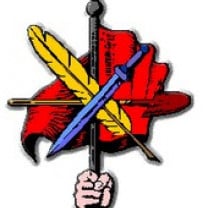
The Armenian Revolution Federation was established in 1890 in Tbilisi. During the First Armenian Republic established in 1918 the party was in power, but it was banned following the Sovietisation of 1920. The party, however, continued to function in the diaspora. The party was reintroduced in Armenia after 1988, was banned in 1994, and re-allowed in 1998.
The ARF aims for “the creation of a free, independent and united Armenia”. The “Dashnaks” hope to once reunite the entire Armenian diaspora on the united Armenian lands. The party therefore is popular among the diaspora Armenians and receives much financial support from them. It currently holds 10 out of 107 seats in national parliament.
The party describes itself as essentially national, socialist, democratic and revolutionary. It is based on social justice, democracy and national self-determination for the Armenian people. The ARF is internationally recognised as a social democratic party, and became a full member of the Socialist International (SI) in 2003. Currently, the party is seeking to intensify the relationship with the Party of European Socialists (PES) and has officially the status of an observer.
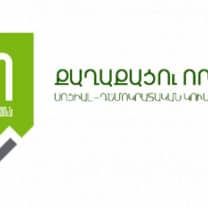
Citizen's Decision was founded in November 2018 after the Velvet Revolution. The party's origins can be traced back to the Mashtots Park Movement. During this protest, activists occupied the Mashtots Park in an attempt to stop construction and perserve public green areas in Yerevan.
The party is not currently represented in parliament, but during their 2018 parliamentary election campaign they voiced criticisms of prime minister-turned-revolutionary leader Nikol Pashinyan for alleged shortcomings and advocated reforming the Constitution, the Electoral Code and instituting transitional justice.
The party advocates for the welfare state, redistribution of wealth, environmentalism, universal healthcare, free education, gender equality, support for trade unions and direct democracy. They also advocate for maintaining neutral relations with Russia, as well as establishing peace in the Caucasus region and self-determination of the Republic of Artsakh.
Other Parties
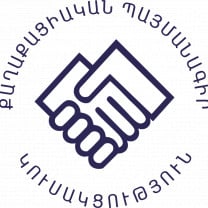
Pashinyan’s Civil Contract was formed in 2013 as an NGO, but in 2015 also as a political party. On 31 March, at the beginning of the 2018 Armenian revolution, Nikol Pashinyan and a group of supporters began a march from Gyumri, Armenia's second largest city. The campaign, named "My Step", was declared with the intention to prevent Sargsyan's election as prime minister on 17 April. On 23 September 2018 the alliance participated and won in the Yerevan City Council election. The alliance ran in the Armenian parliamentary election, 2018 where they won 88 out оf 132 seats.
After the disastorous Armenian-Azerbaijan war in the fall of 2020, large scale protests triggered early elections. After these were called by Pashinyan, the Civil Contract decided to run on its own. It managed to gain 72 seats in parliament in the 2021 election, giving it a two-third majority. Among its goals are to double the population of Armenia within 20 years, ensure human rights and freedoms, eliminate corruption, strengthen the economy, but also protecting the environment. The party is best classfied as a centre party, with a populist ideology.
The loss of the Nagorno-Karabakh region to Azerbaijan in September 2023 has led to increased criticism towards Pashinyan. Recognising the enclave as part of Azerbaijan has led to personal accusations and mass protests, blaming Pashinyan is the reason Karabakh was lost.

The Armenia Alliance was established shortly before the June 20 early parliamentary elections in 2021. In May the party was launched by former President from 1998 to 2008, Robert Kocharyan. He was critical of Prime Minister Pashinyan, specifically his handling of the lost war with Azerbaijan. The Armenia Alliance consists of the Armenian Revolutionary Federation and the Reborn Armenia Party.
During the short campagin, the alliance declared it prused a foreign policy aimed at Armenia's security. In practice this means seeking closer ties with Russia. Other policy goals are the prevention of emigration, fighting corruption and inititiating economic development. Notable is that the alliance also wanted to restrict activities of non-governmental organisations in Armenia.
In the polls before the June 20 elections, the party was expected to challenge Pashinyan's Civil Contract party. Kocharyan was even predicted to overtake Pashinyan in the most recent polls, scoring up to 29%. However, the election proved a dissapointment for the Armenia Alliance. It gained 21.06% of the votes, which corresponds with 29 seats.
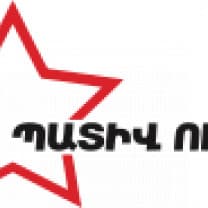
The I Have Honour Alliance was founded by former Prime Minister and President, Serzh Sargsyan, in May of 2021. The alliance consists of the Republican Party of Armenia and the Homeland Party.
The alliance is best described as a centre-right to right-wing movement. Important themes are strenghtening the military and self-determination of the Nagorno-Karabach region. It also seeks to support the Armenian Apostolic Church, besides other more general goals of developing the economy. When it comes to security, the party seeks closer ties with Russia. Its ideology could be classified as national conservative.
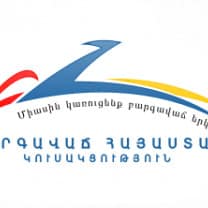
The Prosperous Armenia Party was formed in January 2006 by millionaire businessman Gagik Tsarukyan, who used to be a close associate of the president. The liberal conservative party started out as rather pro-presidential and traditionally supported the governmental side. The party is best classified as a centre-right party, with pro-Russian and social conservative views.
In more recent times the influence of the party decreased. Though it held 26 seats in parliament after the 2018 election, it saw all of those seats taken after the 2021 early elections.
4 Biographies
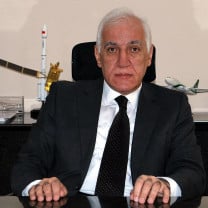
The 62-year-old Khachaturyan is a well-known politician in Armenia, and a former mayor of Yerevan and MP. After his election on 3 March, 2022, he indicated his wish to be a president for all Armenian citizens, not just for members of the ruling party. Khachaturyan’s main concern seems to be the international position of Armenia, especially after the devastating 2020 Nagorno-Karabakh war with Azerbaijan. He said that the country’s security and defense capabilities need to increase, and desires stability in the region. “We must get rid of fears, understand that our region should become a platform for cooperation. We have neighbours, we must be able to live in peace with them. If society has a different vision, then we are leading the country to destruction.”
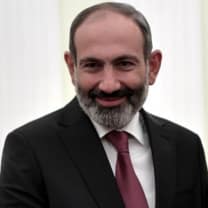
Nikol Pashinyan, born in 1975, is the leader of the My Step Alliance and the Civil Contract Party. Pashinyan was originally a journalist, being the editor of The Armenian Times, which criticised Serzh Sargsyan’s government. He started his political career within the movement of former president Levon Ter-Petrossian, the Armenian National Congress. He supported Ter-Petrossian in the elections of 2008, which had a violent aftermath with 10 people dying in clashes between protesters and the police. Several opposition politicians were charged afterwards, which led Pashinyan to go into hiding. Later he turned himself in and was released like many other political prisoners in 2011, after spending two years in jail.
In 2015, the Civil Contract was registered as a political party. Pashinyan became the face of the protests in Spring 2018 which resulted in the Velvet Revolution and the resignation of Serzh Sargsyan and his government. Pashinyan became the prime minister in May and early parliamentary elections took place in December that same year, which he won with his My Step Alliance. After the lost war against Azerbaijan in the fall of 2020, many Armenians became more critical of his government. Large scale protests forced him to call early elections. When they took place, Pashinyan's Civil Contract party convinginly won the elections though, gaining 53.9% of the votes. This corresponded with two-third of seats in parliament. This gave Pashinyan a strong mandate to form a government as prime minister again.
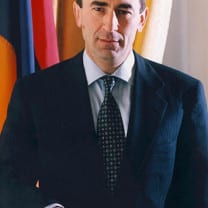
Subscribe to our newsletter
